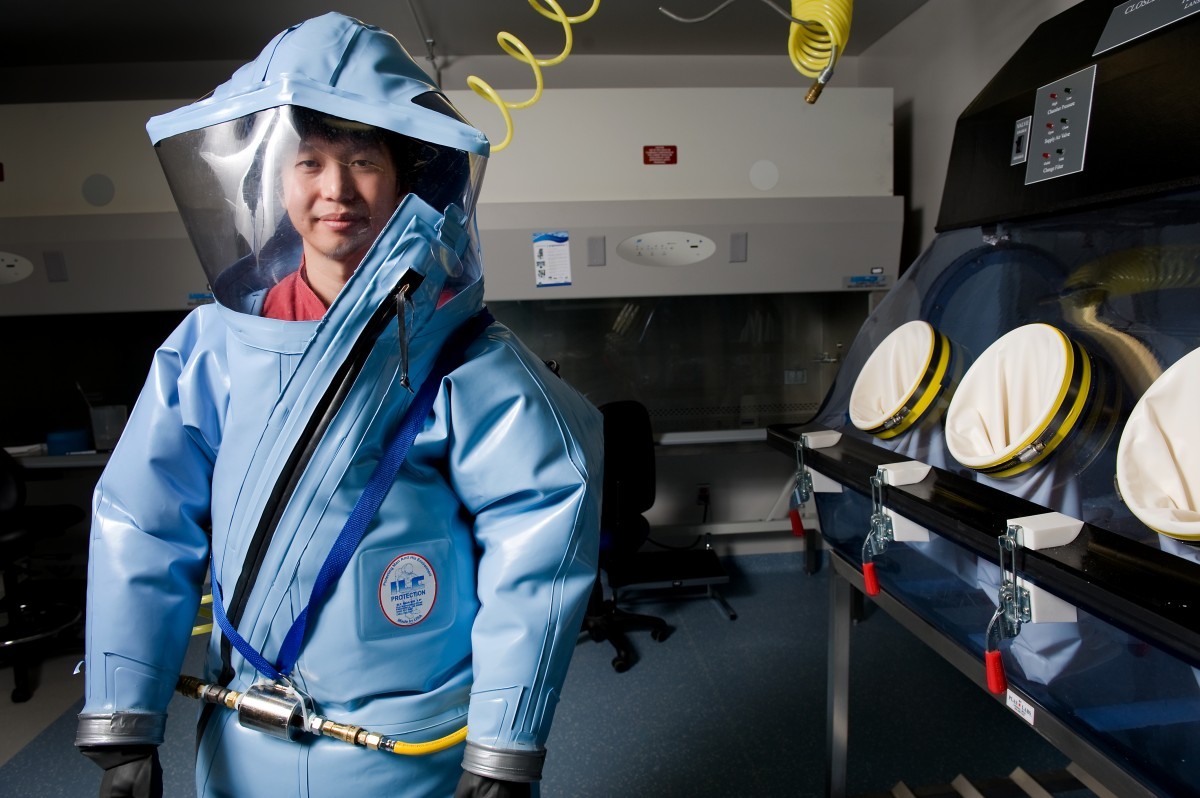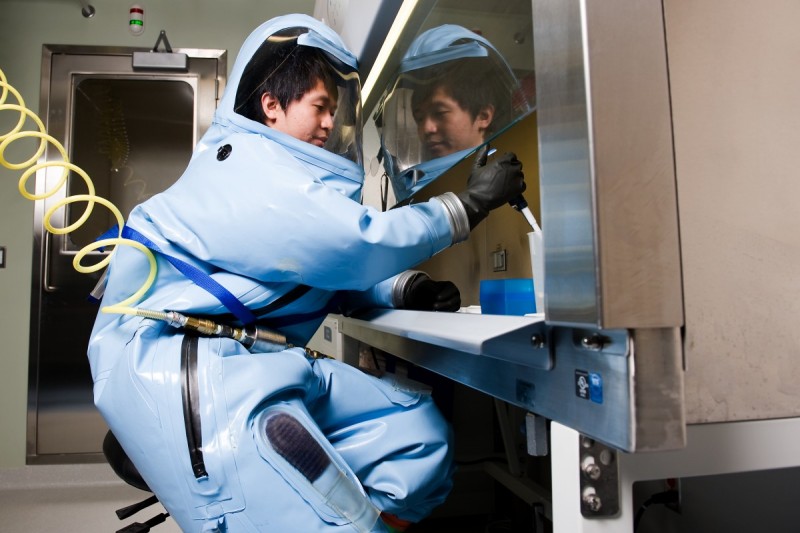
PhD Student, Gary Wong
Gary Wong, a challenger in the battle to curb Ebola
Celebrating U of M Graduate Students
University of Manitoba graduate students do meaningful research that shows us time and again: discovery happens here. We have 47 doctoral and 90 master’s programs that give students — like Gary Wong — the opportunity to change the way the world thinks.
Watching the fictional fight against an Ebola-like virus in the popular 1995 movie Outbreak piqued Gary Wong’s interest. He identified with the individuals wanting to be on the front lines of infectious diseases rather than those running in the other direction.
“I thought this is really cool. I want to look more into it,” recalls the 31-year-old.
Fast forward to 2014 and Wong played a key role in the effort to curb the spread of Ebola in the recent outbreak in West Africa. He was among the U of M contingent working with Canada’s National Microbiology Laboratory that found a treatment for people infected with the deadly disease.
“There is a feeling of satisfaction that we were able to positively impact the outbreak and we were able to save some lives,” says Wong.
He recalls the moment he realized the antibodies he was testing in a Winnipeg lab could save the lives of monkeys infected with the deadly disease. “It was kind of like, ‘Wow, this works. We might have something significant on our hands,’” says Wong, who grew up in Vancouver.
He did this research as part of his PhD under medical microbiology associate professor Gary Kobinger. During the summer of 2014—with all eyes on the outbreak in West Africa—the group announced an even more effective cocktail of antibodies than their headline-grabbing mixture from two years earlier. They showed all of their lab’s monkeys could be saved up to five days after infection, even if they were already severely ill.
Doses of the life-saving treatment, derived from the tobacco plant and dubbed ZMapp™, have since been shipped to the hard-hit region overseas and used to help save infected patients. Every day, Wong works with the Ebola virus in a Level 4 lab. He looks forward to being sent to Sierra Leone where Kobinger operates a mobile blood testing unit. They are among the few groups in the world equipped to handle the virus.=
Wong is grateful he had the opportunity to make a global impact during his studies at the U of M.
“It is very satisfying,” he says, “but there is still more work to be done.”
Interested in pursuing graduate studies at the University of Manitoba? LEARN MORE
>> Further reading: See story on graduate student Cameron Kaye, an innovator in biomedical technology







